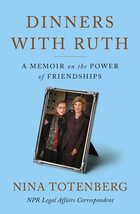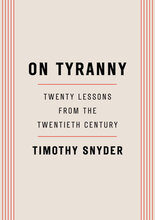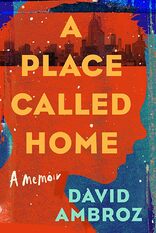What I'm Reading: March 2023, with Commentary
March 17, 2023 at 1:30 PM
Here are the books, with Commentary, I’ve read and most admired in recent months, July 2022-February 2023. The Commentary at the end of this post is “Taking Action for Housing-Insecure Students.”
-
Hearts Touched With Fire: How Great Leaders Are Made by David Gergen, nonfiction,
-
Coventry by Rachel Cusk, essays
-
How to Tell a Story: The Essential Guide to Memorable Storytelling From The Moth by Meg Bowles, Catherine Burns, Jenifer Hixson, Sarah Austin Jenness and Kate Tellers, storytelling guide
-
Braiding Sweetgrass: Indigenous Wisdom, Scientific Knowledge, and The Teaching of Plants by Robin Wall Kimmerer, memoir, heart and science of plants
-
What Happened to You? Conversations on Trauma, Resilience, and Healing by Dr. Bruce Perry and Oprah Winfrey. Impact of trauma and the healing process
-
Reading Above the Fray: Reliable, Research Based Routines for Developing Decoding Skills by Julia B. Lindsey, professional
-
Teaching Critical Thinking: Practical Wisdom by bell hooks. Essays on teaching issues.
-
Crying in H Mart by Michelle Zauner, memoir
-
The Nickel Boys by Colson Whitehead, fiction
-
The Vanishing Half by Brit Bennett, fiction
-
Fellowship Point by Alice Elliott Dark, fiction
-
Lucy by the Sea by Elizabeth Strout, fiction
-
Lessons by Ian McEwan, fiction
-
The Crane Wife: A Memoir in Essays by C. J. Hauser
-
all about love: New Visions by bell hooks, essays about giving and receiving love
-
Inciting Joy by Ross Gay, essays
-
communion: The Female Search for Love, essays
-
Lessons in Chemistry by Bonnie Garmus, fiction
-
A Place Called Home: A Memoir by David Ambroz
-
Dinners With Ruth: A Memoir on the Power of Friendships by Nina Totenberg
-
Bittersweet: How Sorrow and Longing Make Us Whole by Susan Cain, nonfiction, life awareness
-
The Good Life: Lessons From the World’s Longest Scientific Study of Happiness by Robert Waldinger and Marc Schulz, nonfiction, research, advice
-
Better Book Clubs: Deepening Comprehension and Elevating Conversation by Sara Kugler, professional
-
On Tyranny: Twenty Lessons From the Twentieth Century by Timothy Snyder, political manifesto
-
The Lost Kitchen: Recipes and A Good life Found in Freedom, Maine by Erin French, cookbook, memoir
-
Foster by Claire Keegan, novella
-
Felicity by Mary Oliver, poems
-
Dearly by Margaret Atwood, poems
-
Afterlives by Abdulrazak Gurnah, fiction
While I highly recommend all the books on the list, I want to call out several texts that are mostly short, easy reads as well as wonderful. Sometimes we just want to read a slim, uncomplicated book. I am reflecting on my own needs here as I have been in the consuming process of writing a new book for the past year (more about that in next posting) and am not up to writing my usual comprehensive reviews. I begin here with two, concise works of fiction; the other titles are nonfiction.
 Lucy by the Sea by Elizabeth Strout is the latest in Strout’s novels centered on the character of Lucy Barton, a vulnerable woman with a complicated and traumatic past. Strout is a great observer of the human condition and writes in such an intimate and honest manner, the reader—at least this reader—feels “How did she manage to hook me with her spare and seemingly simple prose and produce a masterpiece?” In this book, written and set during the pandemic, Lucy and her ex-husband William escape their separate, New York City residences and move into a lakeside cottage in northern Maine and attempt to sort out their lives. No need to have read the earlier novels first to enjoy and understand this one . To learn about the backstory to writing this book and how Strout works as a writer--useful information for teaching writing, and living, see “At 66, Elizabeth Strout Has Reached Maximum Productivity” by Elisabeth Egan. See also, “An Interview with Elizabeth Strout” after being shortlisted for the Booker Prize 2022 for Oh, William.
Lucy by the Sea by Elizabeth Strout is the latest in Strout’s novels centered on the character of Lucy Barton, a vulnerable woman with a complicated and traumatic past. Strout is a great observer of the human condition and writes in such an intimate and honest manner, the reader—at least this reader—feels “How did she manage to hook me with her spare and seemingly simple prose and produce a masterpiece?” In this book, written and set during the pandemic, Lucy and her ex-husband William escape their separate, New York City residences and move into a lakeside cottage in northern Maine and attempt to sort out their lives. No need to have read the earlier novels first to enjoy and understand this one . To learn about the backstory to writing this book and how Strout works as a writer--useful information for teaching writing, and living, see “At 66, Elizabeth Strout Has Reached Maximum Productivity” by Elisabeth Egan. See also, “An Interview with Elizabeth Strout” after being shortlisted for the Booker Prize 2022 for Oh, William.

Foster by Claire Keegan is a beautifully written novella, under 100 pages, that you will finish in one or two sittings. It’s one of those exquisitely written stories that is unputdownable. Set in rural Ireland, a young girl is brought by her father to spend the summer with a childless couple, her mother’s relatives, presumably because the young girl’s family is overwhelmed by their large, growing family. As the story unfolds, narrated “with precise insight” by the young girl, we can’t help but empathize with the moments of affection, heartbreak and grief that permeate this story. This remarkable book has stayed with me months after I finished reading it. See glowing book review, “A Summer in Foster Care Is One of Ease, Not Abandonment” by Alex Gilvarry.
 Dinners With Ruth is a delightful and informative read, especially if you’re a fan of Ruth Bader Ginsberg, the Supreme Court justice also known as notorious RBG, and Nina Totenberg, prize winning correspondent of National Public Radio (NPR) fame. This intimate memoir is a testimony to the power of friendship for enriching life in good times and tough times. As Nina Totenberg writes in the Prologue, “The bedrock of true, solid friendship is being there for the hard things. And there, our foundational rocks were sure and strong. Each of us saw the other through great personal joys and also deep personal sadness, through illness, loss, and widowhood.” Both of these trailblazing women were unique for their times, becoming influential and consequential at a time when women in high places were rare. See excellent book review.
Dinners With Ruth is a delightful and informative read, especially if you’re a fan of Ruth Bader Ginsberg, the Supreme Court justice also known as notorious RBG, and Nina Totenberg, prize winning correspondent of National Public Radio (NPR) fame. This intimate memoir is a testimony to the power of friendship for enriching life in good times and tough times. As Nina Totenberg writes in the Prologue, “The bedrock of true, solid friendship is being there for the hard things. And there, our foundational rocks were sure and strong. Each of us saw the other through great personal joys and also deep personal sadness, through illness, loss, and widowhood.” Both of these trailblazing women were unique for their times, becoming influential and consequential at a time when women in high places were rare. See excellent book review.
 On Tyranny: Twenty Lessons From the Twentieth Century by Timothy Snyder, acclaimed historian and Professor of History at Yale University, is a comprehensible and persuasive read. This pocket-sized book is meant to empower and, even, compel us as citizens to make our voices heard and to do what we can to promote democratic actions and values in a time when we are moving towards autocracy. On Tyranny provides the history and politics of authoritarianism and offers 20 actions we must take as activist citizens to confront oppression. The first action: “1. Do not obey in advance.” The last action: 20. Be as courageous as you can.” Snyder reminds us, “Life is political, not because the world cares about how you feel, but because the world reacts to what you do.” (p. 33.) An important message for us educators. We cannot remain silent.
On Tyranny: Twenty Lessons From the Twentieth Century by Timothy Snyder, acclaimed historian and Professor of History at Yale University, is a comprehensible and persuasive read. This pocket-sized book is meant to empower and, even, compel us as citizens to make our voices heard and to do what we can to promote democratic actions and values in a time when we are moving towards autocracy. On Tyranny provides the history and politics of authoritarianism and offers 20 actions we must take as activist citizens to confront oppression. The first action: “1. Do not obey in advance.” The last action: 20. Be as courageous as you can.” Snyder reminds us, “Life is political, not because the world cares about how you feel, but because the world reacts to what you do.” (p. 33.) An important message for us educators. We cannot remain silent.
 I learned about A Place Called Home: A Memoir by David Ambroz in a book review in Real Change, a well written, weekly newspaper dedicated to reporting on homelessness and other crucial issues related to caring for our most vulnerable in Seattle, WA where I live. Many of the Real Change street vendors are also journalists for the newspaper. Ambroz writes unflinchingly of surviving a childhood and adolescence filled with unimaginable trauma—and against all odds-- become a thriving adult and contributing member of society. In particular, he becomes a strong advocate for reforming the foster care system where--with rare exceptions—his multiple placements were appalling, dehumanizing experiences. Today, Ambroz is a college graduate, a nationally known expert on poverty and child welfare, a foster dad, and a strong advocate for responsible and caring foster parenting. Ambroz writes, “Foster care is an inflection point where we can halt the systemic inheritance of poverty and violence. All of our children deserve this chance.”
I learned about A Place Called Home: A Memoir by David Ambroz in a book review in Real Change, a well written, weekly newspaper dedicated to reporting on homelessness and other crucial issues related to caring for our most vulnerable in Seattle, WA where I live. Many of the Real Change street vendors are also journalists for the newspaper. Ambroz writes unflinchingly of surviving a childhood and adolescence filled with unimaginable trauma—and against all odds-- become a thriving adult and contributing member of society. In particular, he becomes a strong advocate for reforming the foster care system where--with rare exceptions—his multiple placements were appalling, dehumanizing experiences. Today, Ambroz is a college graduate, a nationally known expert on poverty and child welfare, a foster dad, and a strong advocate for responsible and caring foster parenting. Ambroz writes, “Foster care is an inflection point where we can halt the systemic inheritance of poverty and violence. All of our children deserve this chance.”
As homelessness and affordable and stable housing are big issues in so many places—and because this issue determines the outcome of many students’ lives and wellbeing--my commentary for this latest “What I’m Reading” post is on this subject. We can and must do better.
Commentary: Taking Action for Housing-Insecure Students
Crucially, my reading life has expanded my world view and knowledge in important issues where I was not well informed and catapulted my thinking into how I might, somehow, contribute. Reading has opened my eyes to the fact that stable housing is crucial to students’ well-being and whether or not they are likely to be able to graduate high school. So many families are struggling to stay one step ahead of an eviction notice. For a student who is homeless or home-insecure, it’s hard to focus on anything else. We have a local and national crisis of student homelessness and housing instability, which has led to chronic absences in schools and many students disappearing from school rolls altogether. “Students who do not have a stable place to live are unable to attend school regularly, and failing to graduate from high school is the single greatest risk factor for future homelessness.” See “Young and Homeless in Rural America.” Photographs by Danna Singer. New York Times Magazine, Oct. 2, p.33.) All the more reason we must do what we can to mitigate this tough reality. Housing stability is especially concerning in rural areas, which typically have large numbers of homeless students and inadequate funding to serve them.
We want to be mindful that homeless students have a place where they feel they belong, are respected, and well cared for. While these basic, human needs apply to all of us, for housing-insecure students, school may be the only place where receiving that kind of care is possible. More than that, school can be an opportunity-maker for a brighter future. In Shaker Heights, Ohio, our son Peter’s friend, David, talked about how crucial housing in a good-schools community can be for gaining access to an excellent education. While he was never homeless, it was his family’s move—made possible by federal housing assistance-- from Cleveland, Ohio to Shaker Heights, Ohio that changed the trajectory of his life. Fiona Hill, author of the acclaimed There is Nothing For You Here: Finding Opportunity in the Twenty-First Century (2021.Boston: HarperCollins Publishers) eloquently speaks to the impact of place on opportunity:
Education is the beating heart of the infrastructure of opportunity, but place—where you live—is the body that holds it. Place frames everything else. It has the greatest impact on an individual’s educational and economic opportunity and ability to build wealth. It can hold someone back from finding opportunity or provide a direct pathway to it. For all these reasons, unlocking the potential of place is one of the greatest imperatives of the twenty-first century. (p. 328)
Some of the outstanding books that have influenced my thinking and raised my consciousness on this housing insecurity topic. Each of these books is not only informative and insightful; each is beautifully written. They include but are not limited to This is All I Got: A New Mother’s Search for Home by Lauren Sandler; Evicted: Poverty and Profit in The American City, the Pulitzer Prize winning bookby Matthew Desmond; and Invisible Child: Poverty, Survival, and Hope in an American City by Andrea Elliott, You can learn more about each of these books and others in former postings of my “What I’m Reading with Commentary” on my website. Most recently, see also by Matthew Desmond, his informative and compelling article, A Problem We Can’t Seem to Fix. The New York Times Magazine, March 12, 2023.
Given how fragile and anxious many housing insecure students are—as well as all those students and their families impacted by trauma and poverty--we need to make an effort to “see” them, to support them as best we can, and to be sensitive to tasks, such as giving assignments (that require technology and wi-fi when access might be lacking) and, for example, to disciplinary measures (for students who may be hungry, sleep-deprived, lonely, overwhelmed.) Just trying to cope with other afflictions common to the poor—food scarcity, clothing scarcity, unemployment, segregated schools—can be soul crushing. Let’s put the primary focus on students’ social-emotional wellbeing even as we focus on academic learning. Loving care is what they need first and foremost.
We must do more to create strong and compassionate communities to take care of all of us, which in the long run benefits all of us. For example, recognizing that homelessness is fed by income inequality, California and several other states are cutting through the usual red tape to provide housing for the homeless by refashioning existing motel units as “studio apartments” with a kitchenette. One school district in Washington state is having great success in raising graduation rates by providing “ ‘student navigators,’ ” whose sole function is to attend to each homeless student’s needs, whether that’s housing or food, feeling like they belong at school, or planning for the future beyond graduation.” See “One WA School District Helped Homeless Students Graduate. Can Others?” by Greg Kim. The Seattle Times: Project Homeless, Let’s do what we can in our own schools and communities to create student navigators who are sensitive to and who work to create more security and wellbeing for our most vulnerable students.